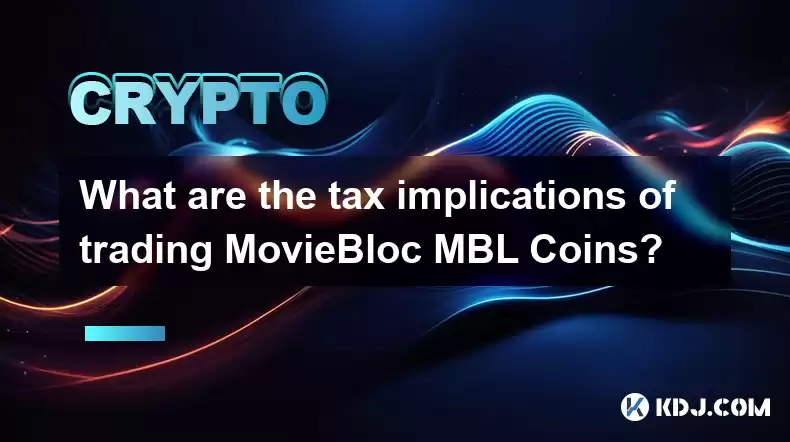-
 Bitcoin
Bitcoin $117800
0.49% -
 Ethereum
Ethereum $4432
0.55% -
 XRP
XRP $3.106
1.07% -
 Tether USDt
Tether USDt $1.001
0.01% -
 BNB
BNB $835.8
1.74% -
 Solana
Solana $189.1
2.72% -
 USDC
USDC $0.9999
-0.01% -
 Dogecoin
Dogecoin $0.2302
3.65% -
 TRON
TRON $0.3485
-0.69% -
 Cardano
Cardano $0.9212
-0.91% -
 Hyperliquid
Hyperliquid $46.97
1.45% -
 Chainlink
Chainlink $22.77
5.61% -
 Stellar
Stellar $0.4284
0.82% -
 Sui
Sui $3.766
2.82% -
 Bitcoin Cash
Bitcoin Cash $583.5
-0.82% -
 Ethena USDe
Ethena USDe $1.001
0.03% -
 Hedera
Hedera $0.2512
2.78% -
 Avalanche
Avalanche $24.18
2.27% -
 Litecoin
Litecoin $120.2
2.10% -
 Toncoin
Toncoin $3.450
1.96% -
 UNUS SED LEO
UNUS SED LEO $9.412
-0.92% -
 Shiba Inu
Shiba Inu $0.00001298
2.35% -
 Uniswap
Uniswap $10.99
3.75% -
 Polkadot
Polkadot $3.962
3.09% -
 Dai
Dai $1.000
0.00% -
 Bitget Token
Bitget Token $4.643
1.38% -
 Cronos
Cronos $0.1511
-0.08% -
 Ethena
Ethena $0.7246
3.18% -
 Monero
Monero $254.9
7.90% -
 Pepe
Pepe $0.00001100
3.32%
What are the tax implications of trading MovieBloc MBL Coins?
Understanding tax implications is essential for cryptocurrency traders to avoid penalties and ensure compliance in different jurisdictions.
Dec 26, 2024 at 04:16 am

Key Points:
- Understanding Tax Implications of Cryptocurrency Trading
- Tax Treatment of MovieBloc MBL Coins
- Reporting Cryptocurrency Transactions
- Capital Gains and Losses
- Tax Exemptions and Deductions
- Tax Implications in Different Jurisdictions
- Frequently Asked Questions
Comprehensive Article:
Understanding Tax Implications of Cryptocurrency Trading
The advent of cryptocurrencies has brought forth a new dimension in financial transactions, but it also poses unique tax implications for traders. Cryptocurrency trading involves the exchange of digital assets for profit, and these transactions are subject to taxation regulations in most jurisdictions. Understanding these tax obligations is crucial to avoid legal penalties and ensure compliance.
Tax Treatment of MovieBloc MBL Coins
MovieBloc MBL Coins are a type of cryptocurrency used in the MovieBloc ecosystem, a blockchain-based platform for the entertainment industry. When it comes to taxation, MBL Coins are treated as digital assets like Bitcoin and Ethereum. They are not considered currencies in most jurisdictions, and therefore, are subject to capital gains tax treatment.
Reporting Cryptocurrency Transactions
Failure to report cryptocurrency transactions can lead to significant legal consequences. Individuals are required to disclose all cryptocurrency-related income on their tax returns. Accurate records of purchase, sale, and exchange transactions, along with the corresponding values at the time of transactions, are essential for proper tax reporting.
Capital Gains and Losses
When cryptocurrency is sold for a profit, the trader incurs capital gains, which are taxable income. The tax rate for capital gains varies depending on the jurisdiction and the holding period of the asset. Long-term capital gains (holding period exceeds one year) are typically taxed at lower rates than short-term capital gains (holding period less than one year).
Conversely, if cryptocurrency is sold for a loss, the trader incurs a capital loss. Capital losses can offset capital gains, resulting in potential tax savings. However, the deductibility of capital losses is subject to specific rules and limits in different jurisdictions.
Tax Exemptions and Deductions
In certain jurisdictions, there may be tax exemptions or deductions available for cryptocurrency trading. However, these exemptions and deductions vary widely depending on local tax laws and regulations. It is important to consult with a tax professional or review relevant tax guidelines to determine eligibility for any applicable tax benefits.
Tax Implications in Different Jurisdictions
Tax implications of cryptocurrency trading can differ significantly across different jurisdictions. Some countries have implemented comprehensive regulations, while others are still grappling with the appropriate tax treatment of digital assets. Traders should be aware of the tax requirements in their specific jurisdictions to avoid potential legal issues.
Frequently Asked Questions
1. How are MBL Coins taxed?
MBL Coins are treated as digital assets and are subject to capital gains tax treatment upon sale.
2. Do I need to report cryptocurrency transactions on my tax return?
Yes, all cryptocurrency transactions, including MBL Coin purchases, sales, and exchanges, must be disclosed on your tax return.
3. What is the tax rate for capital gains on cryptocurrency?
The tax rate for capital gains on cryptocurrency varies depending on the jurisdiction and the holding period of the asset.
4. Can I deduct cryptocurrency losses on my tax return?
In many jurisdictions, cryptocurrency losses can offset capital gains, potentially reducing your overall tax liability. However, consult tax laws for specific rules and limits.
5. Are there any tax exemptions or deductions for cryptocurrency trading in my jurisdiction?
Tax exemptions and deductions for cryptocurrency trading may be available in certain jurisdictions. Check with a tax professional or review relevant tax guidelines for your specific circumstances.
Disclaimer:info@kdj.com
The information provided is not trading advice. kdj.com does not assume any responsibility for any investments made based on the information provided in this article. Cryptocurrencies are highly volatile and it is highly recommended that you invest with caution after thorough research!
If you believe that the content used on this website infringes your copyright, please contact us immediately (info@kdj.com) and we will delete it promptly.
- Kazakhstan's Crypto Leap: Bitcoin ETF and Central Asia's Digital Finance Future
- 2025-08-13 12:45:19
- BlockDAG Presale Blazes Past $371M: Fundraising Frenzy Fuels Crypto Sensation
- 2025-08-13 13:05:21
- Meme Coins: Chasing the 2025 Surge – Which Will Moonshot?
- 2025-08-13 10:25:23
- Bitcoin's Wild Ride: Rally, Pullback, and What's Next
- 2025-08-13 10:25:23
- Bitcoin, Bitmax, and Institutional Demand: A New Era of Crypto Investment
- 2025-08-13 10:45:12
- Solana, ROAM, and Airdrops: What's the Buzz in 2025?
- 2025-08-13 11:35:13
Related knowledge

How to purchase Aragon (ANT)?
Aug 09,2025 at 11:56pm
Understanding Aragon (ANT) and Its PurposeAragon (ANT) is a decentralized governance token that powers the Aragon Network, a platform built on the Eth...

Where to trade Band Protocol (BAND)?
Aug 10,2025 at 11:36pm
Understanding the Role of Private Keys in Cryptocurrency WalletsIn the world of cryptocurrency, a private key is one of the most critical components o...

What is the most secure way to buy Ocean Protocol (OCEAN)?
Aug 10,2025 at 01:01pm
Understanding Ocean Protocol (OCEAN) and Its EcosystemOcean Protocol (OCEAN) is a decentralized data exchange platform built on blockchain technology,...

How to invest in Kyber Network Crystal v2 (KNC)?
Aug 12,2025 at 05:21pm
Understanding Kyber Network Crystal v2 (KNC)Kyber Network is a decentralized liquidity hub built on the Ethereum blockchain that enables instant token...

Where can I buy UMA (UMA)?
Aug 07,2025 at 06:42pm
Understanding UMA and Its Role in Decentralized FinanceUMA (Universal Market Access) is an Ethereum-based decentralized finance (DeFi) protocol design...

How to sell my Ren (REN) tokens?
Aug 13,2025 at 11:35am
Understanding REN Tokens and Their Role in Decentralized FinanceREN is an ERC-20 token that powers the Ren protocol, a decentralized interoperability ...

How to purchase Aragon (ANT)?
Aug 09,2025 at 11:56pm
Understanding Aragon (ANT) and Its PurposeAragon (ANT) is a decentralized governance token that powers the Aragon Network, a platform built on the Eth...

Where to trade Band Protocol (BAND)?
Aug 10,2025 at 11:36pm
Understanding the Role of Private Keys in Cryptocurrency WalletsIn the world of cryptocurrency, a private key is one of the most critical components o...

What is the most secure way to buy Ocean Protocol (OCEAN)?
Aug 10,2025 at 01:01pm
Understanding Ocean Protocol (OCEAN) and Its EcosystemOcean Protocol (OCEAN) is a decentralized data exchange platform built on blockchain technology,...

How to invest in Kyber Network Crystal v2 (KNC)?
Aug 12,2025 at 05:21pm
Understanding Kyber Network Crystal v2 (KNC)Kyber Network is a decentralized liquidity hub built on the Ethereum blockchain that enables instant token...

Where can I buy UMA (UMA)?
Aug 07,2025 at 06:42pm
Understanding UMA and Its Role in Decentralized FinanceUMA (Universal Market Access) is an Ethereum-based decentralized finance (DeFi) protocol design...

How to sell my Ren (REN) tokens?
Aug 13,2025 at 11:35am
Understanding REN Tokens and Their Role in Decentralized FinanceREN is an ERC-20 token that powers the Ren protocol, a decentralized interoperability ...
See all articles

























































































